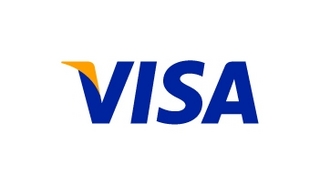New security solution prevents unauthorized withdrawals
Published:
3 February 2004 y., Tuesday
Wincor Nixdorf is the first supplier to develop a cryptographic procedure preventing unauthorized cash machine withdrawals caused by viruses. Its SCOP solution (Secure Cash Out Procedure) ensures that viruses (trojans), now evident more and more with self-service terminals connected to the Internet, do not trigger any non-permissible withdrawals within the ATM's control module.
Private X.25 networks are nowadays often being swapped out in favor of modern Internet connections (public networks). This however also means increased risk of viruses on the network. Inadequate virus protection can allow viruses (trojans) to get into the ATM's control module and cause it to trigger an unauthorized withdrawal. This is where the SCOP procedure kicks in. It ensures comprehensive security checks in conjunction with a central point of authorization. The withdrawal is permitted only following authorization by this central point, thereby creating a secure self-service cash withdrawal.
Šaltinis:
wincor-nixdorf.com
Copying, publishing, announcing any information from the News.lt portal without written permission of News.lt editorial office is prohibited.
The most popular articles
Software company announced new structure_ of it_s business.
more »
 Wincor Nixdorf is enhancing its consulting portfolio for the banking business.
more »
Wincor Nixdorf is enhancing its consulting portfolio for the banking business.
more »
 Wincor Nixdorf is set to present its ProClassic Enterprise Cash Management software for effective and rational organization of end-to end cash management processes in banks at the Retail Delivery Show.
more »
Wincor Nixdorf is set to present its ProClassic Enterprise Cash Management software for effective and rational organization of end-to end cash management processes in banks at the Retail Delivery Show.
more »
 Yahoo said Jerry Yang will step down as chief executive as soon as the board finds a replacement.
more »
Yahoo said Jerry Yang will step down as chief executive as soon as the board finds a replacement.
more »
 Wincor Nixdorf AG has turned in the best year in its history.
more »
Wincor Nixdorf AG has turned in the best year in its history.
more »
 Visa Inc. is working with the Los Angeles transit authority to allow train, subway and bus riders to pay fares with Visa’s payWave-enabled contactless cards.
more »
Visa Inc. is working with the Los Angeles transit authority to allow train, subway and bus riders to pay fares with Visa’s payWave-enabled contactless cards.
more »
 Customers line up in New York City to be the first to buy Google's new G1 phone.
more »
Customers line up in New York City to be the first to buy Google's new G1 phone.
more »
 Children and teenagers are keen internet users - 12 to 15-year-olds spend at least three hours a day on screen - but are not always aware of the dangers: not just sites showing child pornography or violence but also the risk of bullying or grooming.
more »
Children and teenagers are keen internet users - 12 to 15-year-olds spend at least three hours a day on screen - but are not always aware of the dangers: not just sites showing child pornography or violence but also the risk of bullying or grooming.
more »
 A European Commission study found that devices left on stand-by throughout the European Union in 2005 consumed the same amount of electrical energy as a country the size of Greece or Portugal in 2008.
more »
A European Commission study found that devices left on stand-by throughout the European Union in 2005 consumed the same amount of electrical energy as a country the size of Greece or Portugal in 2008.
more »
 The European Commission has launched a new web portal called “Study in Europe” to promote the attractiveness of European Higher Education to students from other parts of the world.
more »
The European Commission has launched a new web portal called “Study in Europe” to promote the attractiveness of European Higher Education to students from other parts of the world.
more »
 With the increasing availability of the internet, children are being exposed more and more to illicit images and content.
more »
With the increasing availability of the internet, children are being exposed more and more to illicit images and content.
more »